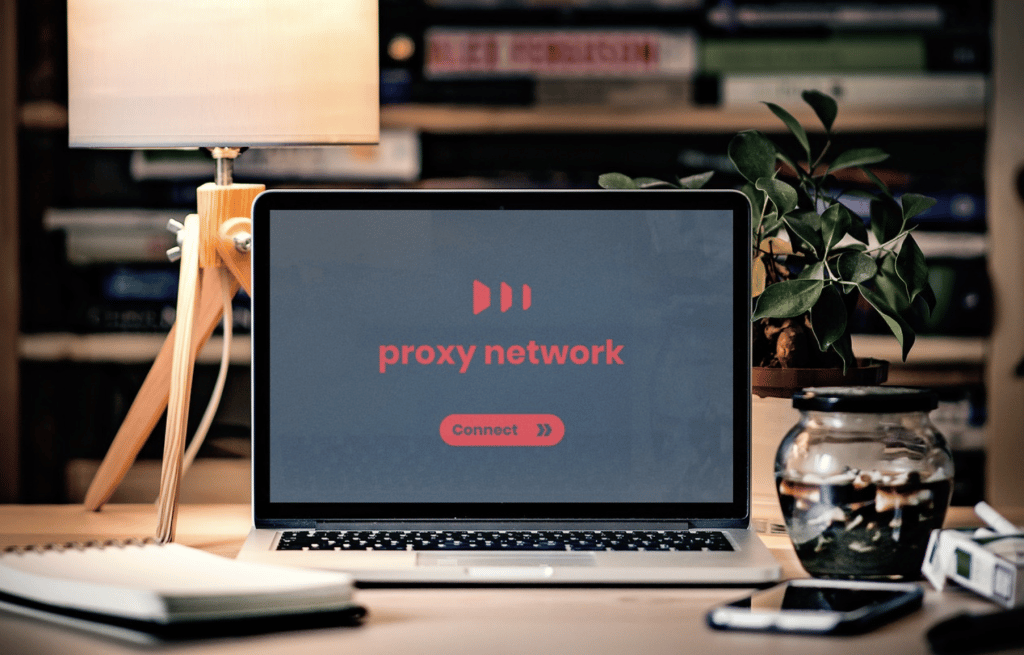Proxies, proxies, proxies. You hear the word thrown around in the cyber security world all the time , but do you really know why?
Well, proxies play a vital role in protecting businesses’ networks and confidential client and customer data. I’m not just talking about the big corporations like Apple, Microsoft or Google, but also small local businesses that need that protection just as much.
So, in this article, we’ll dive into the nitty-gritty of how proxies work and why every business should consider using them for their day to day IT workflow.
What is a proxy?
To start, let’s define what a proxy is, to gett a basic understanding of how it works on a fundamental level.
A proxy basically acts as a middleman between a client and a web server: When a client sends a request, the proxy immdiately intercepts it and either fulfills it or forwards it to the intended server.
This allows the client to remain anonymous and access thee web server with an added level of security. That’s basically all that a proxy does.
Example: Browsing the internet
When an employee wants or needs to access a certaion website, their browser sends a request to the server hosting that website. However, when a proxy is used, the request is sent to the proxy server first before granting the user access. In turn, the proxy server then evaluates the request and makes a decision on how to handle it.
When the proxy server receives this request, it first evaluates the client’s IP address against a list of whitelisted or blacklisted IP addresses that were set up when configuring the proxy. If the client’s IP address is on the whitelist, the request is forwarded to the intended server. If the client’s IP address is on the blacklist, the request is blocked and the website can’t be access.
If the client’s IP address is not on either a whitelist or a blacklist, the proxy server then evaluates the request against a different and subsequent set of rules or filters. These rules can include blocking certain websites, blocking certain types of content, or requiring administrative authentication.
If the request passes all of the rules and filters, the proxy server then forwards the request to the intended server. The server then sends a response back to the proxy server, which is then forwarded on to the client.
All this happens in a fraction of a second – so for the client, it’s completely unnoticable.
Now, why would a business want to use a proxy? I’ll give you a few reasons:
Okay, so now we know how a proxy works, but why do businesses need it? Here are just a few points on the WHY:
- High-level protection from cyber attacks: Proxies are able to unblock unwanted traffic and prevent hackers from accessing a business’s network . This can help keep to keep sensitive data such as customer information, financial records, and trade secrets safe from cybercriminals.
- Control over access: Proxies can be used to filter content and control access to certain websites . This can be beneficial for businesses that want to ensure employees are only accessing sites that are necessary to fulfill their job duties.
- Improved performance: Proxies can cache frequently requested content, reducing the amount of traffic on a network and speeding up the delivery of data . This can improve the overall performance of a business’s network.
“But wait,” you may be thinking, “won’t using a proxy slow down my network?”
The may, but not necessarily. If you’re using a high-level dedicated proxy, it should have minimal impact on network performance. Plus, the benefits of using a proxy far outweigh any potential downsides.
To summarize the benefits:
- Protection from cyber attacks
- Control over access to certain websites
- Improved network performance
- Increased employee efficiency
- Anonymity
- Flexibility
So, how do businesses get proxies?
To get a good proxy businesses have two options.
- Setting up their own proxy servers: This option requires a certain level of technical expertise and may require additional hardware and software investments as well as ongoing maintenance. This is an option for mid to top tier corporations that have the necessary funds to maintain this network.
- Using a proxy service provider: A proxy service provider handles the setup and maintenance of the proxy servers, allowing businesses to focus on other areas of their expertise. This is usually the best option for smaller and local businesses.
One of the leading providers of secure proxies for businesses and individuals is https://fineproxy.de/.
They offer a wide range of services to help businesses keep their networks and data secure. They provide different types of proxies, including shared and truely dedicated and private proxies.
Their services are available to businesses of all sizes and they do have very affordable plans to get started.
Final Thoughts
Proxies should play a crucial role in protecting businesses’ networks and confidential data (GDPR).
They can be used to block unwanted traffic, filter content, and control access to certain websites for employees.
It’s not just about protecting your company’s data, it’s about protecting your customers’ data too. Show them you take their privacy seriously. Don’t be that business that gets hacked and makes headlines for all the wrong reasons. Invest in a proxy solution today.
